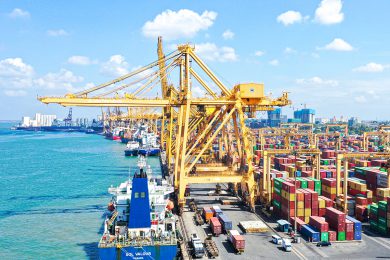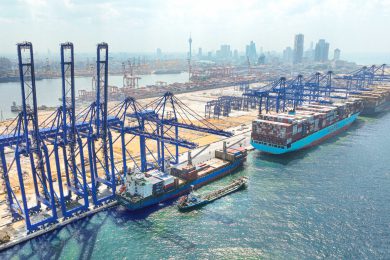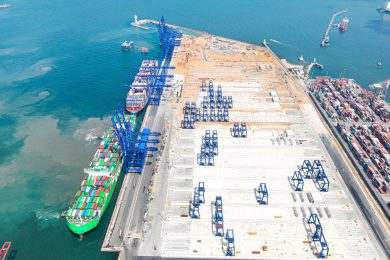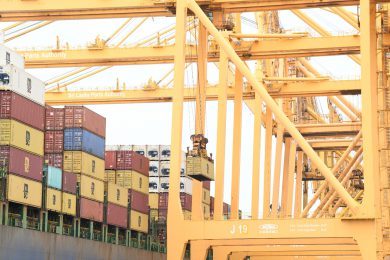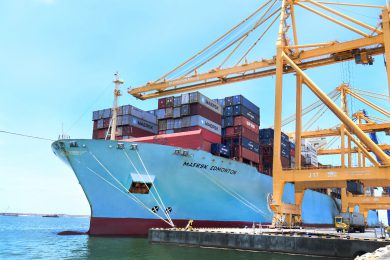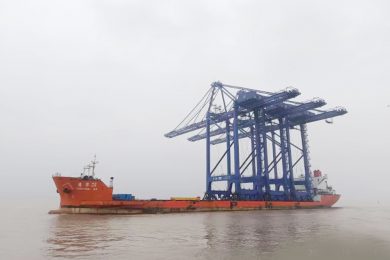- Huge and immediate need for renewable-based fuels in shipping represents opportunity for investors, according to ‘Fuelling the Fourth Propulsion Revolution’ report released today.
- Investment in green infrastructure key, as shipping will carry more than half of the world’s net-zero fuels by 2050, report estimates.
- Particular opportunity for the Global South identified as net-zero fuel production costs expected to be up to 20% lower in Latin America and Africa.
New data released today has revealed how the global shipping industry will require the equivalent of the world’s entire current renewable energy demand in order to replace fossil fuel use.
‘Fuelling the Fourth Propulsion Revolution’, authored by Professor Dr. Stefan Ulreich from Germany’s University of Applied Sciences, and commissioned by the International Chamber of Shipping, highlighted the ‘enormous opportunity’ for investors and governments represented by the global shipping industry’s need for new, green fuels.
To reach the industry’s 2050 (net) zero goal, shipping’s fuel needs would require electricity from renewable sources to increase by up to 3,000 TWh, the report showed. This is the equivalent of the entire world’s current renewable energy production.
It found that to achieve the IEA’s Net Zero Emissions by 2050 scenario, the world would need an 18-fold increase in existing renewable production capacity.
Taking the global trading of hydrogen as an exemplar, the report identified substantial potential benefits for exporting and importing countries, particularly in the Global South. This is due to the expected production cost differentials of such fuels across the world (expected range of €72.60/MWh to €156.40/MWh in 2050).
The cost range reflects the abundance of renewable potential, such as solar and wind power, in many African and Latin American countries, which can generate the electricity needed in the production of hydrogen fuels at much lower cost.
The report identified the first movers who are looking to seize these investment opportunities, including Germany, Algeria, and Chile, who have signed multiple bilateral agreements on the production of hydrogen fuels (seen as key for powering ships).
Unveiled at the World Ports Conference in Vancouver, Canada, ‘Fuelling the Fourth Propulsion Revolution’ urgently calls for increased R&D in green fuels, and to specifically develop production infrastructure in key geographic locations such as Latin America and Africa.
Estimates show a production potential of more than 10,000 TWh for (net) zero carbon fuels in coastal regions worldwide. Shipping views investment in these areas as key to helping countries realise the potential gains present in their bilateral agreements.
Up to this point, there continues to be a lack of investment in zero-emission technologies, with the IEA highlighting that the total amount of corporate R&D investment for maritime has decreased, from $2.7 billion in 2017 to $1.6 billion in 2019.
Yet by 2050, at least half of (net) zero fuels traded globally are expected to be moved by ships, according to the International Renewable Energy Agency (IRENA). Today’s report indicates that this makes maritime a key enabler of the decarbonisation of land-based industrial sectors.
The report’s author, Prof. Dr. Stefan Ulreich of the University of Applied Sciences Biberach, Germany, said:
“To meet the enormous demand for hydrogen-based fuels in the Global North, production centers in the Global South are urgently needed.
“While governments are beginning to realise the need to transition to fuels like hydrogen, little thought to date seems to have been given to how they will actually transport those fuels.
“Shipping must be part of wider energy transition negotiations, and shipping and ports are going to need investment. But with this investment comes huge opportunity for return.”
Stuart Neil, Director of Strategy and Communications at the International Chamber of Shipping said:
“Shipping will be a key enabler of the global energy transition, providing cost effective and flexible solutions to transport at least half of the net zero carbon fuels traded around the world.
“A great deal is talked about the global energy transition to zero emission fuels outside of shipping. But what we have found in this report is that there is a tremendous opportunity for all.”
Featured Image by Thomas Richter (Unsplash)
ENDS
The Press Release Issued by the International Chamber of Shipping
About ICS : The International Chamber of Shipping (ICS) is the principal international trade association for merchant shipowners and operators, representing all sectors and trades and over 80% of the world merchant fleet.



